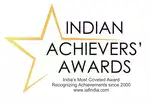Cracking the Language to Make Survey Questions Inclusive in 2024
Inclusive language is a paramount aspect of survey design, more so in 2024, especially when considering survey programming. As society evolves, so does the need for surveys, and the role of an online survey company becomes pivotal in ensuring that these surveys reflect a diverse range of perspectives. We are living in an era where inclusivity is not only valued but expected, and the best online survey companies understand the importance of aligning with this cultural shift. Amid such a paradigm shift in public expectations, businesses utilizing survey programming must recognize the significance of using language that embraces diversity. Incorporating inclusive language into survey questions demonstrates a commitment to understanding and respecting the varied backgrounds, identities, and experiences of survey participants. In today’s blog, we will explore the importance of inclusive language in surveys and how it can help businesses resonate with a broad audience.
What is Inclusive Language and Its Significance in Surveys
Inclusive language is a form of communication that strives to embrace and involve all individuals, irrespective of their background, identity, or abilities. In the context of surveys, using inclusive language is crucial for obtaining accurate and representative responses. It ensures that participants feel seen, respected, and willing to share their perspectives without feeling marginalized. Inclusive language transcends societal barriers. It operates as a bridge, connecting people from diverse walks of life through language that respects, includes, and fosters a sense of belonging. In this regard, it’s worth noting that inclusive language is not only about the words chosen but also about the connections built and the diverse voices heard. Let us discuss the significance of inclusive language in surveys:
Accurate Responses
Inclusive language plays a pivotal role in obtaining accurate responses from survey participants. When individuals feel that the language used resonates with their own experiences, they are more likely to provide honest and authentic answers.
Rich Data
The significance of inclusive language extends to the very core of survey objectives – obtaining representative data. By using language that is accessible to a broad audience, surveys can capture a diverse range of perspectives, thus enriching the overall dataset.
Sense of Visibility
Participants need to feel seen and acknowledged for their unique identities. Inclusive language ensures that respondents, regardless of their background, ethnicity, or abilities, do not feel marginalized during the survey process. This fosters a sense of visibility and inclusivity.
Respectful Dialog
Inclusive language sets the tone for a respectful and considerate dialogue between the surveyor and the participant. It acknowledges the individuality of each respondent and demonstrates a commitment to recognizing and respecting diverse experiences.
Increased Participant Willingness
Inclusive language has the ability to break down potential barriers that might deter individuals from participating in surveys. When participants feel that the survey is mindful of their identity and background, they are more willing to engage openly.
Enhanced Survey Credibility
Surveys utilizing inclusive language not only gather diverse data but also enhance the credibility of the research. By embracing diversity in language, surveys signal a commitment to fairness and equality, bolstering the trustworthiness of the collected information.
Identifying and Avoiding Biased Language
One of the first steps in creating inclusive surveys is to identify and eliminate biased language. Biases can inadvertently skew responses and exclude certain groups. Biased language can manifest in subtle ways, reinforcing stereotypes or favoring certain perspectives, ultimately distorting the authenticity of responses. By employing neutral and unbiased wording, survey creators can foster an environment that encourages honest and diverse feedback. This recognition of bias is not just about political correctness; it's about acknowledging the potential impact of language on survey outcomes and the diverse groups it seeks to represent. By actively working to eliminate biases, survey creators lay the foundation for an environment that encourages honest, unfiltered, and diverse feedback. This eventually contributes to the integrity and reliability of the survey data collected.
Guidelines for Inclusive Survey Writing
Here are some proven ways you can ensure bias-free surveys:
Use of gender-neutral language
Gender neutrality has found a concrete voice in recent years, challenging traditional language norms. As societal perceptions around gender continue to evolve, the adoption of gender-neutral language has become a necessity for brands. By steering clear of gender-specific terms, survey creators can transcend traditional binary distinctions. This way, they can create an environment that acknowledges and respects the spectrum of gender identities and expressions. Opting for gender-neutral alternatives ensures that survey questions resonate with a diverse range of participants, irrespective of their gender identity. This intentional linguistic choice not only avoids reinforcing societal norms but also fosters a sense of recognition and validation for individuals whose experiences may fall outside conventional categories.
Avoidance of ableist terms and assumptions
Ensure your survey does not unintentionally exclude or stigmatize individuals with disabilities. Choose language that is inclusive of all abilities and avoids assumptions about a participant's capabilities. By conscientiously using language that embraces the full spectrum of abilities, survey creators can contribute to breaking down societal barriers and promoting a more equitable representation. This approach can help your brand reflect a commitment to recognizing the value of each participant, irrespective of their abilities. When done right, you can ensure the overall survey experience is respectful, empowering, and truly inclusive.
Inclusive options for demographic questions
When collecting demographic information, provide a range of options that cover various identities and experiences. This approach acknowledges and respects the diversity within your participant pool. By recognizing the complexity of identity and steering away from limiting categories, survey creators can foster an environment that respects and values the multifaceted nature of human experiences. This practice will ultimately yield more accurate and thoroughly representative demographic data than generalized surveys.
Sensitivity to cultural and linguistic diversity
2024 is all about capturing a global perspective. The key here is to recognize the richness of cultural and linguistic diversity among respondents. When creating surveys, you must pay attention to how language works, including idioms and cultural sensitivities, so that the questions make sense and show respect for a variety of cultural backgrounds. When surveys are designed with this awareness, they act as tools that connect people from various linguistic and cultural backgrounds. This creates a welcoming space where participants feel acknowledged, appreciated, and respected, no matter where they come from or what language they speak.
Tips for Writing Inclusive Questions
Follow these tips to make your next survey an inclusive experience for its respondents:
Frame questions to be inclusive and respectful
Craft questions that are open-ended and avoid making assumptions about participants. This approach allows individuals to express themselves in a way that aligns with their unique experiences.
Ensure clarity and simplicity in language
Use language that is clear, straightforward, and accessible to a wide audience. This ensures that participants from various educational backgrounds and language proficiencies can understand and respond accurately.
Consider diverse perspectives in question formulation
Acknowledge and consider the diverse perspectives within your participant pool. Consult with representatives from different backgrounds to ensure that questions are sensitive to a wide range of experiences.
Final Word
In 2024, prioritizing inclusive language is not merely an option. It has become an ethical necessity. By implementing the guidelines and tips that we discussed in this blog, survey creators can break down language barriers, cultivate a more inclusive environment, and gather valuable data that truly represents the vastness of human experiences. Remember, the power of a survey lies not just in the questions asked, but in the inclusivity with which they are crafted. This is where you might need a survey programming expert by your side. Your search for the best market research companies ends here at Unimrkt Research. Over the years, we have been offering market research services across 90 countries, spanning four continents in a variety of industries. Our expertise in data processing and tabulation has earned us the trust of many, enabling us to establish ourselves as one of the top global online survey companies. As a leading research support company, we follow ESOMAR norms and are certified with the ISO 20252 and ISO 27001 standards. To learn about our research services, call +91 124 424 5210/+91 9870 377 557 or email sales@unimrkt.com. You may also fill out our contact form and our representatives will reach out to you at the earliest.
Quick Enquiry
Customer Service, We Make it Better
Recent Posts
- How to Clarify and Align Your Research Goals for Maximum Impact
- Mining Valuable Data: The Driving Force for an Effective Growth Marketing Strategy
- Speaking the Customers Language: 7 Tips for Meaningful Qualitative Research
- Creating Value for Investors: The Benefits of Primary Market Research
- Utilizing Closed-Ended Questions For Quantitative Market Research
- Capturing the Changing Interests of Millennials Through Qualitative Research
- Refining Unit Economics with Robust Quantitative Market Research
- A Concise Guide to Quantitative Market Research
- 3 B2B Market Research Trends That Could Shape 2024
- Eyes on 2024: Changes That Might Disrupt the Healthcare Industry This Year
- Cracking the Language to Make Survey Questions Inclusive in 2024
- Attracting Investors: How Market Research Can Solidify Your Case
- Solid Foundations: Ways to Enhance Trustworthiness in Qualitative Research
- What Makes CATI Research So Effective?
- Moderator Qualities That Improve Qualitative Market Research
- 5 Consumer Market Trends That Will Define 2024
- What are the strengths of quantitative research?
- How to Make Your Partnership with Primary Market Research Firms Fruitful
- A Quick Guide to Harnessing the Strengths of Quantitative Research
- Advice from Your Research Partner: Don't Compromise Quality on Online Surveys













